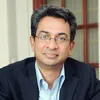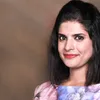Great entrepreneurs don’t fit into any pattern; they form a new one: Alok Goyal of Stellaris
In this episode of the 100X Entrepreneur Podcast, Alok Goyal, Partner at Stellaris Venture Partners, talks about his journey as an investor, the sectors he looks after, the potential of EVs in India, and more.
Alok Goyal graduated from IIT-Delhi in computer science in 1992. At that time, he wanted to be a professor, and was keen to do research in speech recognition. He then went to University of Texas, Austin, and started doing research, but soon realised that his calling lay in entrepreneurship. So, he moved back to India in 1994.
After his return to India, he tried building an IT services company, but was unsuccessful. He then became a developer for IT company Cadence Design Systems and worked there for a couple of years.
For six years after that, he worked as a management consultant, initially with McKinsey India and then with a firm in the Bay Area. In between, he also went to INSEAD in France to do his MBA.

Alok Goyal, Partner, Stellaris Venture Partners
Alok says, “After that, I sold software and was with SAP. It was in early 2013 that I entered the realm of venture capital when I joined Helion.”
Here, he led enterprise software and outsourcing investments, and invested in Whatfix, Axtria, Pipemonk, and Linguanext.
“Three years later, I started Stellaris with two of my colleagues, Rahul Chowdhri and Ritesh Banglani,” he says.
The early-stage, technology-focused venture capital firm, which has offices in Bangalore and Delhi-NCR, invests in seed and Series A rounds of Indian technology companies.
The VC firm backs businesses that “solve large India-specific problems for consumers and SMBs, or build global software products in India”. The firm’s portfolio companies include Mamaearth, Whatfix, mfine, Shop101, Vogo, Loadshare, and Noticeboard.
Siddhartha Ahluwalia, Co-founder of SHEROES, caught up with Alok Goyal in this episode of 100x Entrepreneur podcast, a series featuring venture capitalists and angel investors.
Tune in to listen to Alok Goyal in conversation with Siddhartha:
The Stellaris methodology
Speaking about his transition from MNCs to VCs, Alok reveals that neither had he invested in stocks before nor did he know a single startup in the country.
Stellaris' key investment areas include online services, tech-enabled financial services and healthcare, supply chain networks, vertical machine-learning applications, and SaaS.
“We invest across industries, as long as it is early stage. I continue to look at Saas, which I used to do at Helion. I also focus on logistics, automotive (especially electric vehicles), recruiting, and anything to do with the industrial space,” Alok says.
His two colleagues look at the other sectors, including ecommerce, health, agri, food, education, and others.
Speaking about his journey as a VC over the last six years, he says the journey has been “relatively short” and he has seen multiple companies in his portfolio “doing well”.
“Whatfix is today about 1,000 times from where I invested. The 1,000 times multiple was on a small base as I was a seed investor. But the company has really scaled very rapidly. Another startup, Loadshare, is now 30X from the point when I invested. Axtria was a late-stage investment done by me at Helion. But despite that, it has done very well. There are also companies that have not done well as expected,” he says.
When asked if there is a need for validation from other co-investors while making investments, Alok says: “Almost never. At Stellaris, we have done 13 investments. We don’t look for validation from other investors; all were led by us. We reach our own conclusion before talking to any other investors.”
He adds that often opinions don’t match on any investment portfolio among the six investors on their team. “So to expect that from other early-stage investors is not correct.”
The potential of EVs
Speaking about electric vehicles and their potential large-scale adoption, he says, “In India, four-wheeler application will take some time, just because the upfront cost of the vehicle is quite high. India is not a country where you can build Tesla. We don’t buy these for high-end aspirational applications.”
He believes that India is a utility-oriented country, which is why the two and three-wheeler segments will be where electric vehicles come in first.
“We have seen e-rickshaws in Delhi. Several large manufacturing companies are releasing electric autos. But the largest selling vehicle in the country is the two-wheeler. And we believe the commercial use of two-wheelers will be the area with the largest EV application,” he says.
He adds that the swapping network has an important role to play to get more electric two-wheelers on road. “If you need to ride a scooter for 100 km a day, either you build a very large battery or you build a smaller battery to reduce the upfront cost. But then you need swapping stations on the road to change batteries.”
Investor vs entrepreneur
Alok believes that investors are no different from entrepreneurs.
“Every founder is, in my opinion, always raising funds. That’s true for VCs as well. The difference is that we don’t have one single lead investor; multiple LPs collectively constitute our fund,” he says.
Speaking about his routine, he says he is an early riser. He likes to begin his day by going for a run, heads to the office by 8 am, and tries to wrap up by 6:30 pm to 7 pm to get a few hours with his family.
“The bulk of my day goes in meeting entrepreneurs, which energises and excites me. I also try to take a walk with the family in the evening; this is a fairly religious routine. We like to eat dinner as a family, on the table. And I like to read before I go to bed.”
When asked about the traits he looks for in founders, Alok says: “Great entrepreneurs don’t fit into any pattern. In fact, the reason they are great is because they don’t fit into any pattern. They form a new pattern.”
Speaking about how he lives his life, Alok says: “There is no particular purpose or goal but I have three objectives. The first is that I would like to pursue what I like. I know it’s a luxury, but that’s one of my defining principles. The second is to lead a balanced life. I love my work and I enjoy my work, but there are also other things that I love. They are Indian classical music, running, mathematical puzzles, and my involvement with an NGO. I need to find a balance among these things today, and not when I am 65. And the third objective is to continuously keep improving what I do.”
(Edited by Teja Lele Desai)









